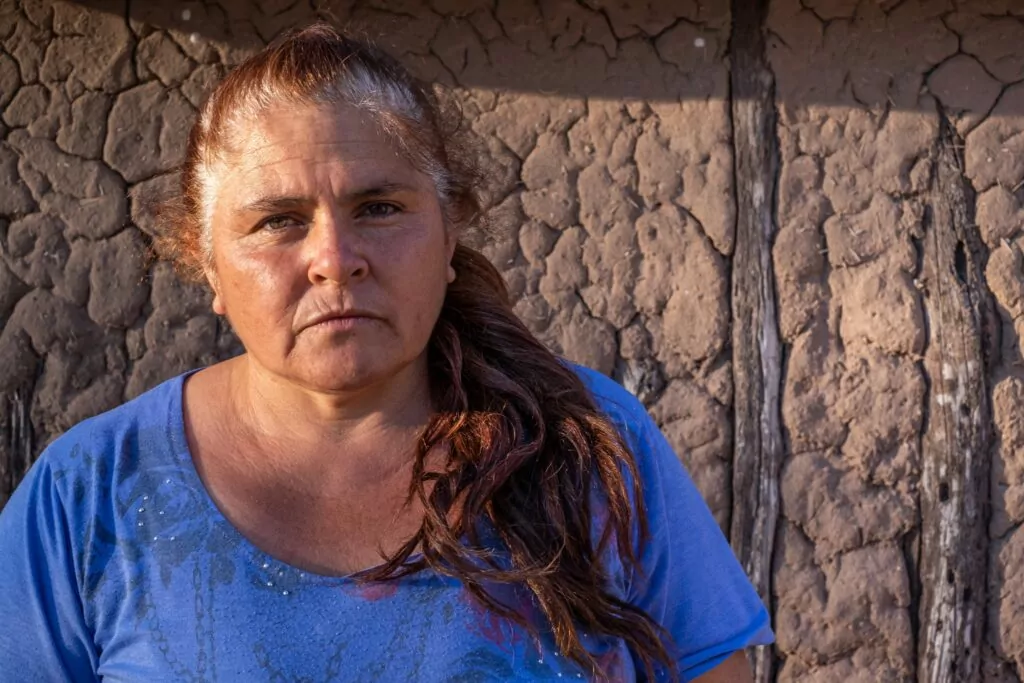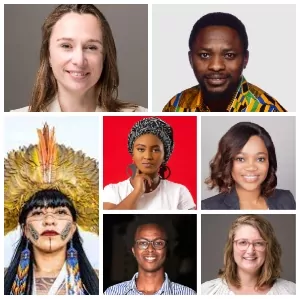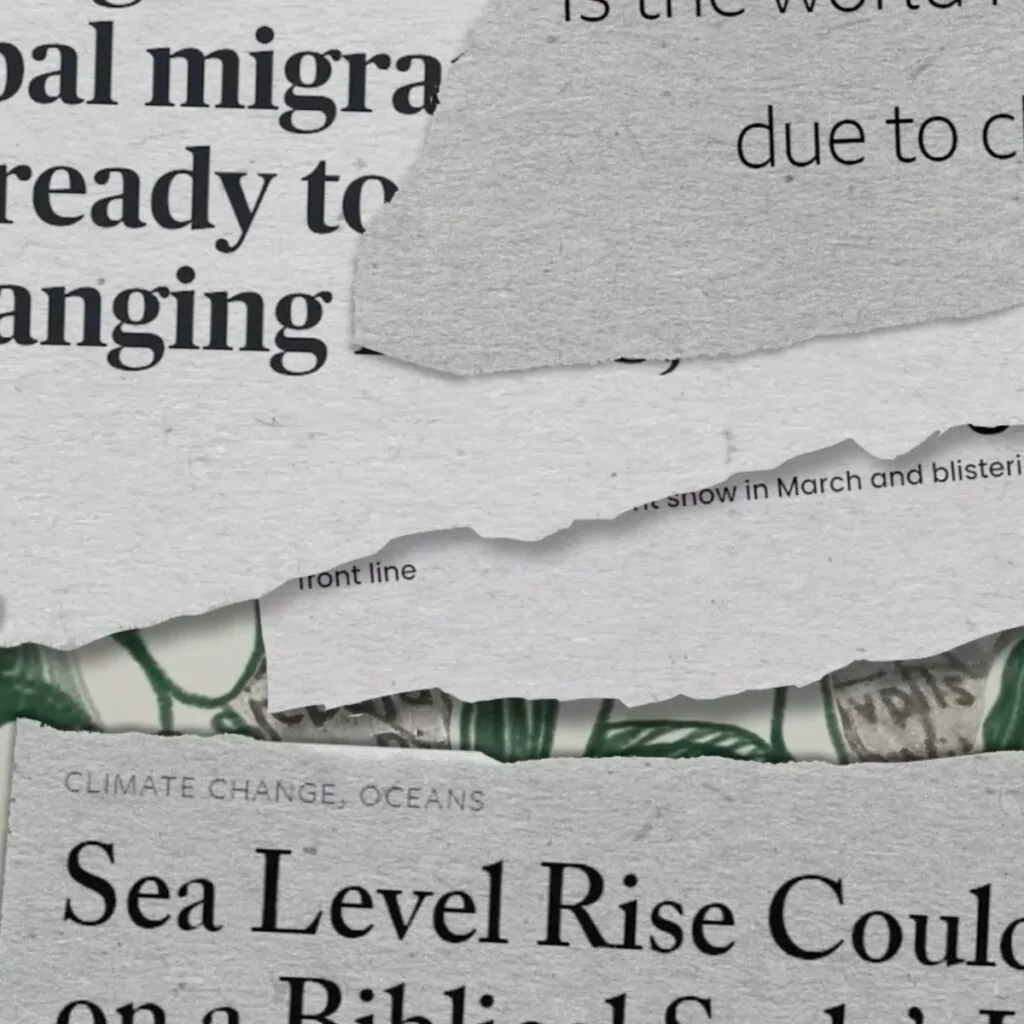Against deforestation: love for nature and resistance
Dear Reader,
In this month’s edition of Livism we’re focusing on deforestation. It’s a major problem in many countries; pristine forest ecosystems in Indonesia, Congo and Brazil, just to name a few, are at risk due to land grabs and tree loss from agricultural use. The Gran Chaco area in Argentina, for example, is still subject to large-scale deforestation by cattle firms despite being declared a protected area in 2001, meaning Indigenous peoples who live there continue to be negatively impacted.
We’re highlighting stories from the frontlines of deforested areas and have partnered with Territorios y Resistencias, a collaborative project by Chicas Poderosas Argentina that works with women and LGBTTIQ+ people on storytelling and communications. With their support we bring you a first person account from Angélica, chief guide of the 27 communities of the Tonokoté peoples, who is fighting against deforestation in Argentina. You will also hear from Benard in Kenya, whose passion is to solve environmental challenges.
As usual, we’ve also included suggestions for books, podcasts and online gatherings that could be of interest to you and your friends!
Happy reading,
From,
The Livism Team
The struggle of the Tonokoté people in Santiago del Estero to conserve their land and protect the forest
By Angélica Serrano


© Florencia Navarro
My name is Angélica Serrano, I am 43 years old and I am the kamachej (chief guide) of the 27 communities of the Tonokoté people recognized in the province of Santiago del Estero, Argentina.
Yaku Muchuna means “scarce water” in Quichua. It is the name given to my community, located in the San Felipe area of the department of Figueroa, where one of the last native forests of the province is located, and which is part of the Gran Chaco Americano area. We have a elementary school, with only one staff, and a small chapel. The internet connection is only available in certain areas and at certain times of the day. It is difficult to communicate. Bicycles and motorcycles are the usual means of mobility.
The community is made up of 24 families, who are mainly dedicated to raising animals for domestic use, in a territory of 8,431 hectares. But today we face two problems. On the one hand, the terrible drought that has plagued the country for three years and which has a direct impact on our animals and our way of life. On the other hand, the agricultural businessmen who seek to take over our properties by means of apocryphal deeds or adulterated property titles, ignoring the possessory rights of our community.
The intention of these businessmen is to acquire large estates, clear them and then convert them into soybean plantations. Examples of this are reflected in dozens of complaints in the courts of Santiago. In 2013 we resisted the advance of a company that, with bulldozers, tried to clear the land from which our families extracted the essentials to live. That is how we all agreed that it was necessary to resist at any cost this outrage and defend what is ours, and we have been fighting together ever since.
We also had to put up with counter-denunciations from businessmen who accused us of being unruly in the context of the resistance. In 2022, our protests against the advance of the company were repressed and one of our comrades was arrested. The Infantry used tear gas in a violent manner against women, children and all the comrades of the Indigenous peasant communities who were present on Route 5 to block the road and protest peacefully.
For us it is important to fight to protect the territory as one of the last native forests in the province with the highest deforestation in the country. We know that thanks to this land we can develop, raise animals, plant and make our way of life. Without land we are nothing. Today, we are noticing many changes because the land, little by little, is crying out for help.
We want to have a place in this society and to be taken into account. We want people in this society to know that we exist, that we have a culture and rights too. That we don’t have to wear feathers or the clothes our ancestors used to wear to be identified. We are the Indigenous people of today.


© Florencia Navarro
Spotlight on: Benard Kioko Ndaka
Benard Kioko Ndaka was born in Eastern Kenya and is the founder and CEO of Green Economy For Kenya – an environmental conservation oriented organisation. His passion is solving environmental challenges, such as climate change, making more green spaces and eradicating poverty within society, mostly among the urban poor.


Can you tell us a bit about your journey becoming an environmentalist?
I loved nature while I was still a child and this interest grew within me as time went by. During my late teenage years I was inspired by one of the Nobel Peace Prize Wangari Maathai. She was a strong fighter for our planet Earth, and it is from her that I drew huge energy to fight for the planet.
Due to my love for nature, I founded a charitable environmental conservation organisation in 2020 called Green Economy For Kenya (GEFOK) and so far we have managed to grow 9,000 trees in various parts of our nation. We have engaged more than 5,000 young people, comprising sports-men, school-going kids and community members. Our long-term dream is to keep on advocating for our planet and to grow 100 million trees by 2030, making sure we involve more than one million young people. It has been possible before, and it is also possible now.
When it comes to reforestation and climate solutions, what’s your message for people who sometimes feel powerless?
Planet Earth is a common gift that we all draw substantial benefits from. It is a home that we can’t ignore taking care of, because it is our Mother. We are not waiting for our leaders to make a change because ACTION CANNOT WAIT and climate change is not waiting for us to take action, we are making a difference ourselves. Climate change will not be tackled by the great ideas that we have in our minds, it is by doing something small, like planting one tree at a time, that will make a difference. Nothing is too small to bring change in the World. No one should be powerless because power belongs to those who do something to change the planet, but not to those who just sit and wait to see things change. There is no room for giving up because climate action and restoration is a call, a mission, a journey that when one commits themselves, they have to walk till the end.
What would you like to see more of coming from governments and international institutions that could represent real support for individuals acting to tackle the climate crisis?
Our governments and international organisations should have mechanisms to uplift grassroots initiatives. They should emphasise green politics to create more room for climate action. I am joining green politics in my country. It will sound good when we have environmentalists in our governments and we will be assured of proper representation of climate and environmental matters.
There is also a need to recognise and appreciate individuals acting to tackle climate change. This will open up more networks, funding for locally led environmental initiatives, and it will also boost people’s morale. Environmentalism comes with a lot of sacrifices and challenges, such as lack of support, from local people to national level leaders. Investing more resources in individuals to catalyse their climate action initiatives is important as well.
In case you missed it
They are at increased risk for the climate disaster, yet individuals with disabilities are often disregarded by legislators and campaigners when it comes to taking action on the issue, says this opinion article.
Skateboarding is heavily dependent on carbon-hungry concrete, but could a cement-free alternative and a focus on skate-friendly cities help reduce its impact?
Mikaela Loach speaks about her book in an interview with Atmos Magazine – find out why it’s a useful resource for anybody trying to improve their activism.
Bangladesh has a lot to teach us, with a mix of technology and community solutions that are saving lives on the frontlines of climate change.
Public school teachers have been striking in response to long-term frustrations over the state of their profession and to address injustices, including those created by the climate crisis.
A Canadian company has begun drilling near the Okavango River Delta, one of the world’s last wild places, promising jobs for locals and fossil fuels for investors. So far, there’s been only big profits for the founders.
Is overpopulation really to blame for the ecological disaster we’re facing? Read more about how linking overpopulation with climate change can contribute to discrimination and racism.
Afrofuturist architect, Diébédo Francis Kéré, who’s part of an architecture movement that seeks to build using local resources and sustainable alternatives to concrete, offers insights in this conversation with Wired.
Making art available for as many people as possible must take into account the environmental and social impacts of museums – read about Museums of the Future in this article.
Recommendations
What we’re listening to
Other than producing an environmental disaster movie every other year, what can Hollywood contribute to the conversation? Pam Rittelmeyer and Rae Binstock discuss how the industry is engaging on the issue.
What we’re attending
A discussion that covers various topics: Minnesota’s climate and environmental justice challenges, national and worldwide responsibilities in addressing climate inequalities, and injustice from intra- and intergenerational perspectives.
When: Thursday, May 25
Time: 7 – 8pm CEST
Where: Online
Four leaders in the fields of agriculture, education, clean cooking and climate justice spoke on how women are leading on climate change at an event organised by Project Drawdown and the Clean Cooking Alliance, chaired by Wanjira Mathai.
Watch the webinar recording here.
What we’re reading
- Every Leaf a Hallelujah | Ben Okri
An environmental tale that powerfully addresses the most important problems of our times. Ben Okri infuses a story that weaves together wonder, adventure and environmentalism with the force of his mystic vision.
- It’s not that radical | Mikaela Loach
In this book, Mikaela Loach offers a fresh and radical perspective for real climate action that could drastically change the world as we know it for the benefit of us all.







